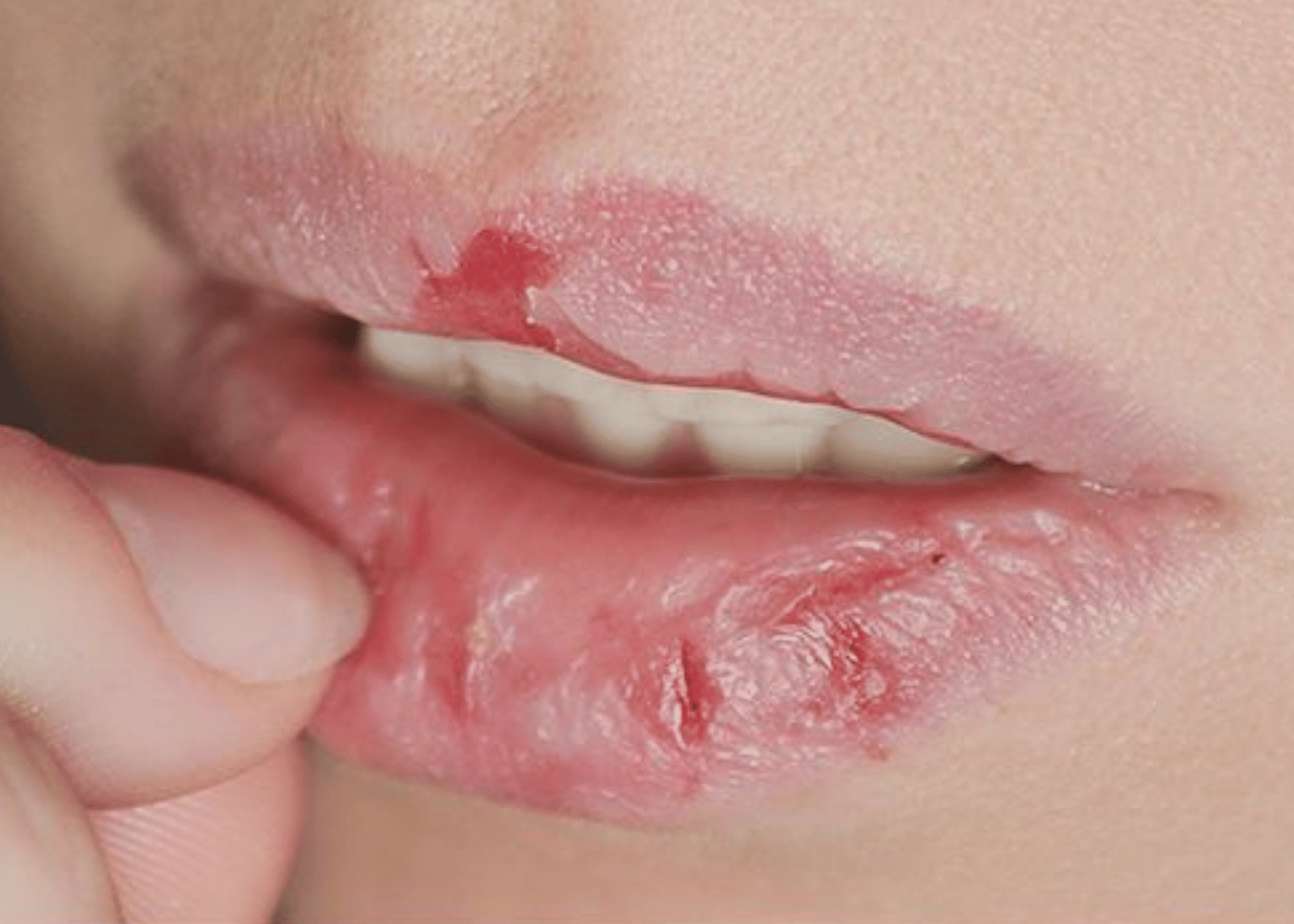Pay Attention to These 7 Body Changes: What They Mean for Your Health
Your body is constantly communicating with you, sending subtle signals that something might need attention. These body changes to watch out for often appear long before serious health problems develop, making them crucial early warning systems that could potentially save your life.
Many people dismiss minor physical changes as normal aging or temporary inconveniences. However, recognizing health warning signs in the body early can mean the difference between simple treatment and complex medical interventions. Your body’s ability to signal distress through seemingly small changes is one of nature’s most sophisticated alarm systems.
7 Body Changes You Should Never Ignore
1. Cracked or Dry Lips
When your lips become persistently cracked, dry, or develop painful fissures, it’s often more than just weather-related dryness. Cracks in lips health meaning can indicate several underlying conditions that require attention.
Chronic dehydration is the most common culprit, but vitamin deficiencies—particularly B vitamins, iron, or zinc—can also manifest through lip problems. In some cases, persistent lip cracks might signal fungal infections, especially if accompanied by redness or swelling around the mouth area.
If your lip problems persist despite using moisturizers and staying hydrated, consider consulting a healthcare provider to rule out nutritional deficiencies or infections.
2. Cracked Heels
Dry cracked heels causes extend far beyond simple dryness or wearing open-back shoes. While these factors contribute to the problem, consistently cracked heels that don’t respond to moisturizing treatments can indicate more serious health issues.
Diabetes often manifests through severe foot problems, including persistently cracked heels that heal slowly. This occurs because high blood sugar levels affect circulation and nerve function in the extremities. Thyroid disorders, particularly hypothyroidism, can also cause extremely dry skin that’s most noticeable on the heels.
Other potential causes include eczema, psoriasis, or athlete’s foot infections. If your cracked heels are painful, bleeding, or accompanied by other symptoms like increased thirst or frequent urination, seek medical evaluation.
3. Sudden Hair Loss
Losing 50-100 hairs daily is completely normal, but sudden, excessive hair loss represents one of the most important early signs of health problems that people often ignore.
Hormonal imbalances, particularly thyroid disorders, can trigger significant hair loss. Hyperthyroidism and hypothyroidism both affect hair growth cycles, leading to thinning or patchy hair loss. In women, hormonal changes during menopause, pregnancy, or due to polycystic ovary syndrome (PCOS) can cause similar effects.
Chronic stress, both physical and emotional, can push hair follicles into a resting phase, resulting in noticeable hair loss several months after the stressful event. Nutritional deficiencies, particularly iron, protein, or biotin deficiency, also commonly cause hair thinning.
4. Persistent Fatigue
Everyone experiences tiredness, but persistent fatigue that doesn’t improve with rest is among the most significant symptoms you should not ignore. This type of exhaustion often indicates underlying health conditions that require medical attention.
Iron deficiency anemia is one of the most common causes of persistent fatigue, particularly in women. When your body lacks sufficient iron to produce healthy red blood cells, every organ struggles to receive adequate oxygen, resulting in overwhelming tiredness.
Sleep disorders, including sleep apnea, can cause severe daytime fatigue even when you think you’re getting enough sleep. Chronic conditions like diabetes, heart disease, or autoimmune disorders also frequently present with persistent exhaustion as an early symptom.
5. Yellowing of Eyes or Skin (Jaundice)
Yellowing of the whites of your eyes or skin tone represents a serious warning sign that should never be ignored. This condition, called jaundice, indicates problems with your liver’s ability to process bilirubin effectively.
Liver diseases, including hepatitis, cirrhosis, or liver cancer, commonly cause jaundice. However, it can also result from bile duct obstructions, certain medications, or blood disorders that cause rapid breakdown of red blood cells.
Even mild yellowing warrants immediate medical evaluation, as early detection of liver problems significantly improves treatment outcomes.
6. Unexplained Bruising
While occasional bruises from minor bumps are normal, unusual body changes and what they mean include frequent bruising without clear causes. This symptom can indicate serious underlying health conditions.
Vitamin deficiencies, particularly vitamin C, K, or B12 deficiency, can cause easy bruising. However, unexplained bruising might also signal blood clotting disorders, liver disease, or certain cancers like leukemia.
If you notice bruises appearing without injury, bruises that are unusually large or colorful, or bruising accompanied by other symptoms like fatigue or frequent infections, consult a healthcare provider promptly.
7. Changes in Nails
Your nails provide valuable insights into your overall health status. Signs your body needs attention often appear in nail changes that many people overlook.
Pale or white nail beds can indicate anemia or liver disease. Yellow nails might suggest fungal infections, lung problems, or lymphatic issues. Dark lines under nails, particularly new ones, require immediate medical evaluation as they could indicate melanoma.
Nail clubbing (fingertips and nails that curve around the fingertips) often signals lung or heart problems. Spoon-shaped nails typically indicate iron deficiency, while brittle nails might suggest thyroid disorders or nutritional deficiencies.
Why Paying Attention Matters
Early detection of health problems through recognizing body changes offers significant advantages. When caught early, most health conditions are more treatable, less expensive to manage, and have better long-term outcomes.
Ignoring persistent symptoms allows underlying conditions to progress, potentially becoming life-threatening or requiring more invasive treatments. For example, early-stage diabetes detected through persistent fatigue and slow-healing cracks is much easier to manage than advanced diabetes with complications.
Your body’s warning system evolved over millions of years to keep you alive. Dismissing these signals essentially ignores your body’s sophisticated self-monitoring system.
When to Seek Medical Help
Understanding when body changes warrant medical attention requires distinguishing between temporary, normal variations and persistent warning signs.
Seek immediate medical help if symptoms appear suddenly, are severe, or interfere with daily activities. Gradual changes that persist for more than a few weeks also merit professional evaluation, even if they seem minor.
Don’t wait for symptoms to worsen or for multiple symptoms to appear simultaneously. Early intervention almost always leads to better outcomes and simpler treatments.
Preventive Tips for a Healthier Body
Maintaining optimal health reduces the likelihood of experiencing concerning body changes:
Nutrition: Eat a balanced diet rich in vitamins, minerals, and antioxidants. Focus on whole foods, lean proteins, fruits, vegetables, and adequate hydration.
Exercise: Regular physical activity improves circulation, supports immune function, and helps maintain healthy organ function.
Sleep: Prioritize 7-9 hours of quality sleep nightly to allow your body to repair and regenerate.
Stress Management: Chronic stress negatively impacts every body system. Practice stress-reduction techniques like meditation, deep breathing, or regular exercise.
Regular Check-ups: Annual physical exams and age-appropriate screenings help detect problems before symptoms appear.
Conclusion
Your body continuously provides valuable information about your health through various physical changes. Recognizing these body changes to watch out for—including cracked lips, dry heels, sudden hair loss, persistent fatigue, jaundice, unexplained bruising, and nail changes—can help you identify health problems early when they’re most treatable.
Remember that these seven warning signs represent just a few of the ways your body communicates potential health issues. Staying attentive to your body’s signals, maintaining healthy lifestyle habits, and seeking appropriate medical care when concerning changes occur are essential components of optimal health management.
Don’t ignore your body’s signals—your health depends on it. Trust your instincts when something feels different, and never hesitate to consult healthcare professionals when persistent changes concern you. Your body’s early warning system exists to protect you, but only if you listen to what it’s telling you.

